PPT-Arrays as pointers and other stuff
Author : tatyana-admore | Published Date : 2018-02-20
COP3275 Programming using c Diego J RiveraGutierrez Administrative stuff Quiz 6 was Quiz 7 this Friday Will tell you what to expect on Wednesday Homework 5 Any
Presentation Embed Code
Download Presentation
Download Presentation The PPT/PDF document "Arrays as pointers and other stuff" is the property of its rightful owner. Permission is granted to download and print the materials on this website for personal, non-commercial use only, and to display it on your personal computer provided you do not modify the materials and that you retain all copyright notices contained in the materials. By downloading content from our website, you accept the terms of this agreement.
Arrays as pointers and other stuff: Transcript
Download Rules Of Document
"Arrays as pointers and other stuff"The content belongs to its owner. You may download and print it for personal use, without modification, and keep all copyright notices. By downloading, you agree to these terms.
Related Documents

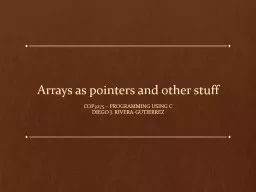
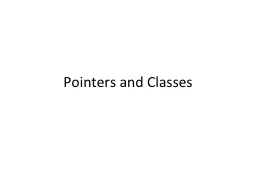
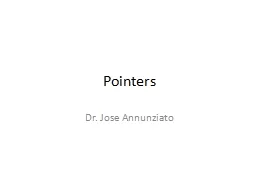
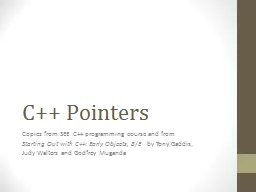
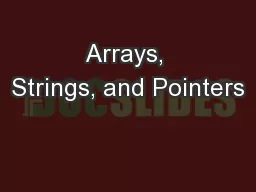



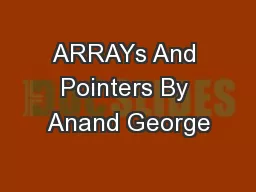
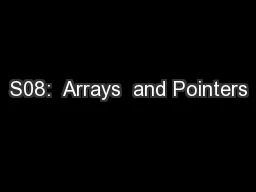

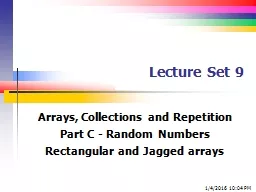

![[PDF]-Understanding Pointers in C C++: Pointers in all its forms: Fully working Examples](https://thumbs.docslides.com/987844/pdf-understanding-pointers-in-c-c-pointers-in-all-its-forms-fully-working-examples-and-applications-of-pointers-english-edition.jpg)